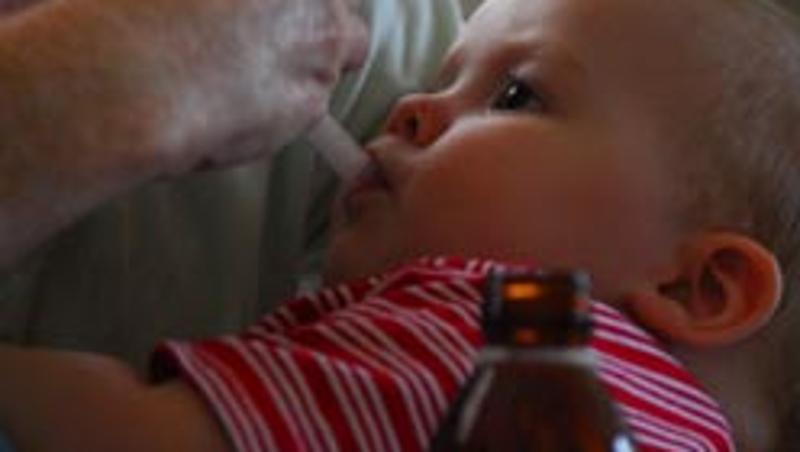
Almost half of all parents incorrectly dose their children with over-the-counter medications to manage temperatures, according to a Queensland University of Technology researcher.
Nursing researcher Anne Walsh said international studies showed more than 30 per cent of parents overdosed children, while a quarter underdosed youngsters with drugs like paracetamol and ibuprofen - or both.
As part of Australia's first study into how parents manage fever in children, Ms Walsh has reviewed 24 years of worldwide research and found mismanagement of fever is a universal trend.
She said while little had changed in what parents knew about fever, there was some concern about the new trend of alternating different types of medication.
"A lot of parents are now being advised to give their children paracetamol and then follow up with some ibuprofen maybe two hours later," she said.
"The concern is that there has been no research into the effects of dosing children with these two drugs ... the side effects of ibuprofen alone can include bleeding and stomach upset if not taken with food."
The PhD researcher said 95 per cent of parents administered medications to manage temperatures, but in many cases it might not be necessary and could even make recovery from illness longer.
"Few people seem to realise temperatures of up to 40 degrees can be beneficial in helping the body fight bacteria and viruses," she said.
"When you fight temperature, the body will raise it again and again until the bacteria or viral levels have dropped sufficiently.
"Administering incorrect doses of medication every four hours for a prolonged period, or too high a dose, can result in liver damage."
Ms Walsh, who is based at QUT's Institute of Health and Biomedical Innovation, has published her review in the April issue of the Journal of Advanced Nursing.
She said it was understandable concerned parents turned to over-the-counter medications when their children were sick, and health practitioners often reinforced the belief that temperatures needed to be managed.
"Many parents worry that high temperatures will bring on febrile convulsions but less than 5 per cent of children suffer from these," she said.
"I am not saying parents should ignore symptoms when their children are sick but it would be better to focus on their well-being rather than their temperature.
"Medication only needs to be administered if a temperature is around 39.5 degrees or higher or if a child is irritable, miserable or appears to be in pain."
Ms Walsh said parents should seek medical attention if children:
- were feverish under six months;
- suffered headache, neck stiffness or light hurt their eyes;
- had breathing difficulties;
- refused to drink;
- persistently vomited;
- were drowsy;
- suffered pain;
- had a rash of red-purple spots;
- or did not improve from mild symptoms within 48 hours.
In the next stage of the research, she will analyse data from surveys with Australian parents, in order to design an education program on correct fever management.
The project received financial support from the Royal College of Nursing Australia.
Media contacts: Carmen Myler/Toni Chambers - (07) 3864 1150.




